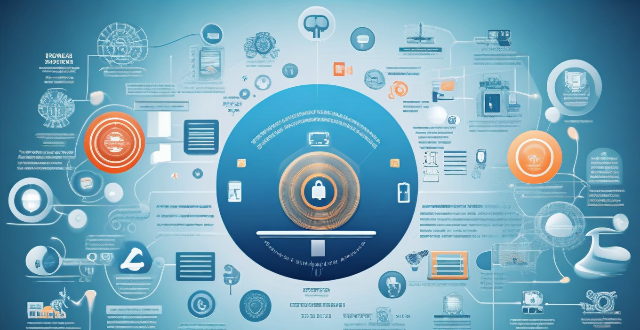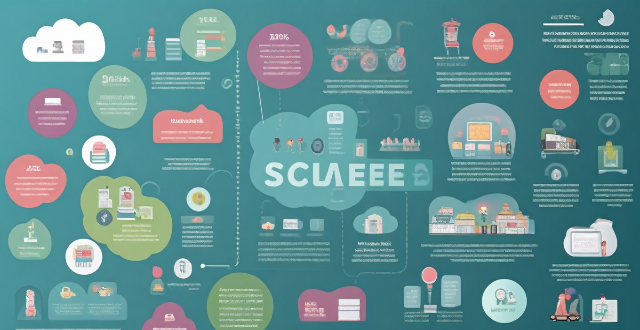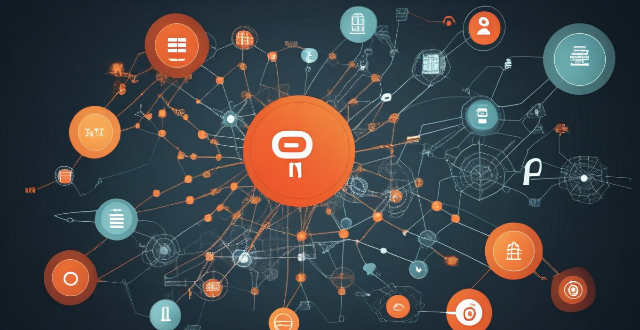Transparency Cryptography

How does cryptocurrency work ?
Cryptocurrency is a digital or virtual currency that uses cryptography for security, operating independently of a central bank. It allows direct transfers between individuals without intermediaries like banks. Key components include cryptography (public and private keys, encryption, decryption), blockchain technology (decentralization, transparency, immutability, consensus mechanism), mining (Proof of Work, Proof of Stake, mining rewards, network security), and smart contracts (automation, efficiency, security, transparency). These technologies work together to create a secure, decentralized, and transparent digital payment system with fast, low-cost, and borderless transactions while maintaining user privacy and security.

What is cryptocurrency and how does it work ?
Cryptocurrency is a digital or virtual currency secured by cryptography, operating independently of central banks. Key features include decentralization, transparency, security, and immutability. Its functionality relies on blockchain technology, cryptography, mining, consensus mechanisms, and wallets for storage. Transactions are initiated using private keys, broadcasted to the network, validated by miners, and recorded on the blockchain. Cryptocurrency offers a secure and transparent way to transfer value digitally without intermediaries.

How does blockchain ensure decentralization and transparency ?
Blockchain technology ensures decentralization and transparency through a distributed ledger, consensus mechanisms like Proof of Work (PoW), Proof of Stake (PoS), and Delegated Proof of Stake (DPoS), node autonomy, immutable records via cryptographic hashing, public accessibility of the ledger, verifiable transactions using digital signatures, and smart contracts. These features create an environment resistant to manipulation and corruption, offering a paradigm shift in secure and accountable digital interactions.

What is cryptocurrency ?
Cryptocurrency is a type of digital or virtual currency that uses cryptography for security and operates independently of a central bank. It is decentralized, meaning it does not rely on any government or financial institution to maintain its value. Instead, it relies on a peer-to-peer network to process transactions and manage the creation of new units. Its key features include decentralization, transparency, security, anonymity, and limited supply. Some examples of cryptocurrencies include Bitcoin, Ethereum, Ripple, Litecoin, and Dogecoin.

What is blockchain technology and how does it relate to cryptocurrency ?
Blockchain technology is a decentralized, distributedBlockchain technology is a decentralized, distributed transactions in a secure and im It is the foundational structure for cryptocurrencies, which are digital or virtual currencies that use cryptography for security and operate independently of a central bank. The key features of blockchain include decentralization, immutability, transparency, and security. Cryptocurrencies rely on blockchain technology to maintain a transparent and secure system for recording transactions without intermediaries like banks. Transactions are validated by network participants through consensus algorithms like Proof of Work (PoW) or Proof of Stake (PoS), and new coins can be issued as rewards for those who validate transactions and maintain the network. Overall, blockchain technology enables a peer-to-peer electronic cash system that is both secure and decentralized.

Can you explain how blockchain technology works and its potential applications ?
Blockchain technology is a decentralized, digital ledger that records transactions in a secure and transparent manner. It works through a peer-to-peer network of computers (nodes) without a central authority, using cryptography to secure data and verify participants' identities. A consensus mechanism ensures all nodes agree on the state of the ledger, making it immutable and transparent. Transactions are validated, grouped into blocks, added to the chain, and distributed to all nodes. Potential applications include finance (cryptocurrencies, smart contracts, remittances), non-financial areas (supply chain management, health records, voting systems, identity verification), and other sectors like real estate and intellectual property rights. Blockchain promises increased efficiency, security, and transparency across various industries.

What are the benefits of using smart contracts ?
Benefits of Using Smart Contracts Smart contracts are self-executing contracts with the terms of the agreement between buyer and seller being directly written into lines of code. They offer a range of benefits including automation, transparency, security, efficiency, and cost savings. By automating processes and reducing the need for intermediaries, smart contracts can save time and money, as well as reduce the risk of errors or fraud. They are secured by cryptography, which makes them extremely difficult to hack or manipulate. This security feature can be particularly useful in situations where sensitive information needs to be shared between parties. Smart contracts can also lead to cost savings by reducing the need for intermediaries or third parties. As blockchain technology continues to evolve, it is likely that we will see even more innovative uses for smart contracts in the future.

How does DeFi differ from traditional finance ?
DeFi is a financial system based on blockchain technology and smart contracts, while traditional finance relies on intermediaries like banks. Key differences include centralization vs decentralization, accessibility, transparency, security, cost efficiency, and regulation. DeFi offers advantages such as wider accessibility, higher transparency, and lower fees, but also comes with risks. It's important to research and consult professionals before making financial decisions.

Can blockchain technology revolutionize the financial industry ?
Blockchain technology has the potential to revolutionize the financial industry by introducing a decentralized, transparent, and secure way of conducting transactions. In this article, we will explore how blockchain technology can transform the financial sector and discuss its benefits and challenges. Benefits of Blockchain in Finance: - Decentralization: Elimination of intermediaries and increased efficiency. - Transparency: Immutable records and audit trail for regulatory compliance. - Security: Distributed ledger and cryptography ensure secure transactions. Challenges of Blockchain in Finance: - Regulatory uncertainty: Lack of clear regulations and compliance issues. - Scalability: Limited throughput and ongoing research for scaling solutions. - Interoperability: Integration with legacy systems and lack of standardization. Potential Use Cases for Blockchain in Finance: - Payments and Remittances: Faster and cheaper cross-border transactions. - Trade Finance: Streamlined processes and automated smart contracts. - Securities Settlement: Real-time settlement and fractional ownership of assets. In conclusion, blockchain technology has the potential to revolutionize the financial industry by introducing a decentralized, transparent, and secure way of conducting transactions. While there are challenges to overcome, such as regulatory uncertainty, scalability concerns, and interoperability issues, the benefits of blockchain in finance are undeniable. As the technology continues to evolve and mature, we can expect to see increased adoption and innovation in the financial sector powered by blockchain technology.

How do TCFD disclosures improve transparency and accountability in business practices ?
The Task Force on Climate-related Financial Disclosures (TCFD) was established by the Financial Stability Board (FSB) to develop a framework for companies to disclose information about their impact on, and from, climate-related risks. These disclosures play a crucial role in enhancing transparency and accountability in business practices. By adhering to TCFD recommendations, businesses are compelled to communicate openly about their strategies and plans related to climate change. This includes identifying and explaining the potential impact of climate change on their operations and disclosing any financial risks or opportunities that may arise due to climate change. Investors increasingly demand clarity on how companies are addressing climate change. TCFD disclosures provide this clarity, fostering trust among investors and other stakeholders. The TCFD framework sets clear benchmarks for disclosure, making it easier for stakeholders to assess a company’s performance against industry standards. This promotes comparative analysis and performance evaluation. As the TCFD gains momentum, companies are incentivized to comply not just for regulatory reasons, but also to maintain their reputation and competitive edge in the market. Knowing they must report on climate-related matters can push companies to innovate, seeking new ways to reduce environmental impacts and adapt to climate risks. With TCFD disclosures, companies are prompted to consider long-term implications of their actions, leading to more sustainable business models. The disclosures align businesses with the United Nations Sustainable Development Goals (SDGs), particularly those related to climate action and life on land. TCFD provides a global standard for reporting, ensuring that companies operating across multiple jurisdictions can be assessed consistently. Through TCFD disclosures, companies can share successful strategies and practices related to climate risk management, fostering a collaborative approach to addressing climate change. Disclosures can reveal areas where companies might need partners—whether in technology, research, or other sectors—to achieve their climate goals.

What is the difference between a regular contract and a smart contract ?
A regular contract and a smart contract differ in terms of their **nature**, **enforceability**, **cost**, **speed**, and **transparency**. Below are the key differences between these two types of contracts: ## Nature ### Regular Contract - Legal agreement between two or more parties. - Typically written in natural language (e.g., English). - Governed by local laws and regulations. ### Smart Contract - Self-executing contract with the terms directly written into code. - Deployed on a blockchain network. - Enforced by the underlying code and cryptographic protocols. ## Enforceability ### Regular Contract - Relies on legal institutions for enforcement (e.g., courts). - May involve mediation or arbitration processes. - Penalties for breach can be monetary or involve other forms of relief. ### Smart Contract - Autonomously executes when predetermined conditions are met. - Enforcement is decentralized and automated. - Penalties for breach are typically programmed into the contract logic. ## Cost ### Regular Contract - Can be costly due to legal fees, notary services, and potential litigation expenses. - Involves overhead of paper-based record keeping and manual processing. ### Smart Contract - Generally less expensive because it eliminates intermediaries. - Costs associated with blockchain transaction fees and contract deployment. ## Speed ### Regular Contract - Time-consuming process from negotiation to signing and execution. - Settlement times can vary widely depending on the complexity of the agreement. ### Smart Contract - Faster execution once the conditions are met. - Real-time settlements possible due to automation. ## Transparency ### Regular Contract - Limited transparency; only involved parties have access to the contract details. - Requires trust in the counterparty to disclose all relevant information. ### Smart Contract - High transparency; contract code and transactions are visible on the blockchain. - Trust is placed in the immutable and verifiable nature of the blockchain.

How can blockchain technology be used in voting systems to ensure transparency and fairness ?
Blockchain technology, known for its role in cryptocurrencies, can enhance voting systems by ensuring transparency, security, and fairness. It provides immutable record keeping, public verifiability, and a comprehensive audit trail. Blockchain also protects voters' identities, decentralizes the voting process, and automates vote counting. Implementing this technology requires designing the blockchain infrastructure, developing a user-friendly interface, testing, pilot programs, stakeholder education, and full implementation. However, challenges such as scalability, user adoption, legal and regulatory hurdles, and technical security must be addressed.

What is blockchain technology and how does it work ?
Blockchain technology is a decentralized, digital ledger that records transactions securely and transparently. It was originally designed for Bitcoin but has since been adapted for various applications. Key features include decentralization, transparency, immutability, and security. The technology works through transaction creation, broadcast, verification, block creation, consensus, addition to the blockchain, and perpetuation. Benefits include enhanced security, elimination of intermediaries, increased transparency, reduced costs, and improved efficiency. Blockchain technology has potential applications beyond cryptocurrency and could transform industries such as finance and supply chain management.

How can companies improve their ESG scores ?
Improving a company's Environmental, Social, and Governance (ESG) scores requires a comprehensive approach to business operations that emphasizes sustainability, ethical behavior, and transparency. Strategies for enhancing each aspect of the ESG framework are outlined in this guide. In the environmental dimension, companies should reduce their carbon footprint through energy efficiency, renewable energy, and green buildings; implement sustainable sourcing practices such as supply chain audits and resource stewardship; and manage waste through recycling programs and hazardous waste disposal. In the social dimension, workplace standards should be established, including fair wages, diversity and inclusion, and health and safety measures. Community engagement should also be prioritized through local investment, volunteerism, and transparency. Consumer protection is another key area, with product safety, privacy, and customer service being important considerations. In the governance dimension, board diversity and independence should be ensured through independent directors, committees, and ethical conduct policies. Transparency and accountability should also be maintained through regular ESG reporting, stakeholder engagement, and third-party audits. By focusing on these key areas, companies can improve their ESG scores and enhance their reputation, investor confidence, and long-term financial performance.

What ethical considerations are involved in vaccine distribution equity ?
Vaccine distribution equity is a crucial issue that requires careful consideration of ethical principles such as justice, utilitarianism, autonomy, and transparency. Justice demands that vaccines be distributed based on medical need rather than wealth or social status, while utilitarianism emphasizes maximizing overall well-being by prioritizing essential workers and those who can contribute most to society. Autonomy requires respecting individuals' choices about whether or not to receive a vaccine through informed consent and voluntary participation. Transparency is essential for building trust and promoting public confidence in vaccine distribution efforts through public communication and accountability mechanisms. Overall, ensuring equitable distribution of vaccines requires balancing these ethical considerations to promote fairness, maximize benefits, respect individual autonomy, and maintain transparency throughout the process.

How can I build a strong relationship with my investors ?
The article emphasizes the importance of building a strong relationship with investors for the success of a business. It outlines several key strategies to achieve this, including communication, trustworthiness, collaboration, recognition, professionalism, and continuous improvement. The tips provided suggest that regular updates, transparency, active listening, fulfilling promises, integrity, partnership approach, joint decision making, appreciation, acknowledgement of success, punctuality, high-quality presentation materials, seeking learning opportunities, and creating a feedback loop are all crucial elements in fostering a positive relationship with investors. By following these guidelines, businesses can establish a strong foundation of trust, transparency, and collaboration that will lead to mutually beneficial relationships and ultimately contribute to the success of their ventures.

What skills are needed to work with blockchain technology ?
Working with blockchain technology requires technical skills in programming languages, distributed systems, cryptography, networking, data structures and algorithms, database management, cloud services, version control, testing and debugging, and DevOps. It also demands business acumen in project management, market analysis, financial literacy, and business development. Legal and ethical understanding is crucial for regulatory compliance, privacy and security, ethical considerations, and intellectual property. Communication skills are needed for clear communication, documentation, and presentation. As blockchain evolves, professionals must stay updated with advancements and best practices.

What are the most popular types of cryptocurrency ?
This text provides an overview of five popular types of cryptocurrency: Bitcoin, Ethereum, Ripple, Litecoin, and Cardano. Each type is briefly described, highlighting its key features and unique characteristics.

What are the different types of data encryption algorithms ?
Data encryption algorithms are crucial for securing digital information. They can be categorized into symmetric key, asymmetric key, hashing, stream ciphers, block ciphers, and hybrid encryption systems. Each type has its own strengths and is used in different scenarios to ensure data privacy and integrity.

What is the future of cryptocurrency ?
The future of cryptocurrency is uncertain but will be shaped by trends like decentralization, adoption and integration, regulation and legal clarity, and innovation.

Is cryptocurrency legal in all countries ?
The legality of cryptocurrency varies across countries, withThe legality of cryptocurrency varies across countries, with it and others banning or The United States, Japan, and El Salvador are examples of countries where cryptocurrency is legal and regulated. In contrast, Algeria, Egypt, and Nepal have outright banned it due to concerns over financial stability and potential misuse in illegal activities. China, India, and Russia have imposed restrictions on its use but have not completely prohibited it. It is crucial to understand local laws and regulations before engaging in any cryptocurrency-related activities.

What is the role of encryption in securing data transmission ?
Encryption is crucial for securing data transmission by converting plain text into unreadable ciphertext, ensuring confidentiality, integrity, and authentication. It protects sensitive information, prevents data tampering, enhances trust, complies with regulations, and reduces the risk of data breaches. Two main types of encryption are symmetric and asymmetric encryption, each using different keys for encryption and decryption.

What is data encryption and how does it work ?
Data encryption is a crucial cybersecurity measure that transforms plaintext into ciphertext, protecting it from unauthorized access. It involves the use of complex algorithms and secret decryption keys. Encryption is significant for securing data at rest, in transit, and during processing, helping meet compliance requirements and reducing financial risks associated with data breaches. Its evolution includes historical precursors and wartime innovations, with AI expected to enhance its capabilities in the future.

Can cryptocurrency be used for illegal activities ?
The article discusses the potential use of cryptocurrency for illegal activities due to its anonymity and decentralization. It outlines various illegal activities associated with cryptocurrency, including money laundering, drug trafficking, cybercrime, tax evasion, and terrorism financing. The article also highlights the measures being taken by governments and technology developers to combat the illegal use of cryptocurrency, such as regulatory oversight, technological solutions, and international cooperation. The conclusion emphasizes the importance of stakeholder cooperation in ensuring the safe and legitimate use of cryptocurrency.

What are the benefits of using cryptocurrency ?
Cryptocurrency offers several benefits including decentralization, security and privacy, lower transaction fees, accessibility, elimination of chargebacks, increased liquidity, programmable money, and potential for growth.

What are the ethical considerations in vaccine distribution ?
Vaccine distribution is a complex process that involves several ethical considerations. These considerations are crucial to ensure that the distribution is fair, just, and equitable. Here are some of the key ethical considerations in vaccine distribution: ## Fairness One of the most important ethical considerations in vaccine distribution is fairness. This means that everyone should have an equal opportunity to access the vaccine, regardless of their socioeconomic status, race, ethnicity, or geographic location. To achieve this, it is essential to establish transparent criteria for prioritizing groups for vaccination. ### Criteria for Prioritization - **Healthcare workers and first responders**: These individuals are at high risk of exposure to the virus and play a critical role in managing the pandemic. - **High-risk individuals**: People with underlying medical conditions or compromised immune systems are more susceptible to severe illness from COVID-19. - **Vulnerable populations**: Elderly adults, people living in congregate settings (such as prisons or homeless shelters), and those with limited access to healthcare should be prioritized. - **Essential workers**: Workers in critical infrastructure sectors, such as transportation, food production, and energy, should be given priority to maintain societal functioning. ## Justice Another ethical consideration in vaccine distribution is justice. This involves ensuring that the distribution process does not exacerbate existing inequalities or create new ones. For example, if only wealthy countries receive vaccines while poorer nations are left without adequate access, this could perpetuate global health disparities. ### Addressing Inequalities - **Global cooperation**: International collaboration is essential to ensure equitable vaccine distribution worldwide. - **Financial support**: Wealthy nations and organizations should provide financial assistance to help low-income countries acquire vaccines. - **Technology transfer**: Sharing knowledge and technology related to vaccine production can help increase global capacity and reduce dependence on a few manufacturers. ## Transparency Transparency is also a crucial ethical consideration in vaccine distribution. This includes being open about the decision-making process, criteria for prioritization, and progress in vaccine distribution. Transparency helps build trust among the public and ensures that the process is accountable and subject to scrutiny. ### Enhancing Transparency - **Public communication**: Regular updates on vaccine distribution plans and progress should be provided through various channels, such as government websites, social media, and press conferences. - **Stakeholder involvement**: Engaging with community leaders, advocacy groups, and other stakeholders can help ensure that diverse perspectives are considered in the decision-making process. - **Data sharing**: Providing access to data on vaccine supply, allocation, and administration can help monitor progress and identify areas for improvement.

Is blockchain only related to cryptocurrencies, or are there other uses ?
Blockchain technology, known for its role in cryptocurrencies like Bitcoin, has a wide range of applications including supply chain management, healthcare, voting systems, real estate, art and entertainment, finance beyond cryptocurrency, and government services. Its transparency, security, and decentralization make it a valuable tool for industries where trust and verifiable records are crucial.

Are there any risks associated with investing in DeFi ?
Investing in DeFi comes with risks such as smart contract vulnerabilities, impermanent loss, regulatory uncertainty, and lack of transparency. It is important for investors to carefully evaluate these risks before investing in any DeFi project.